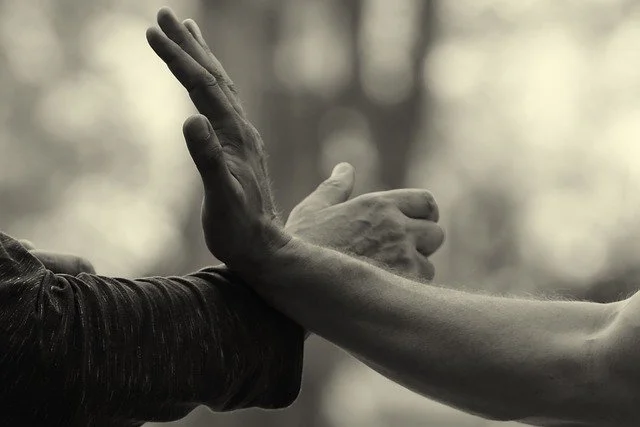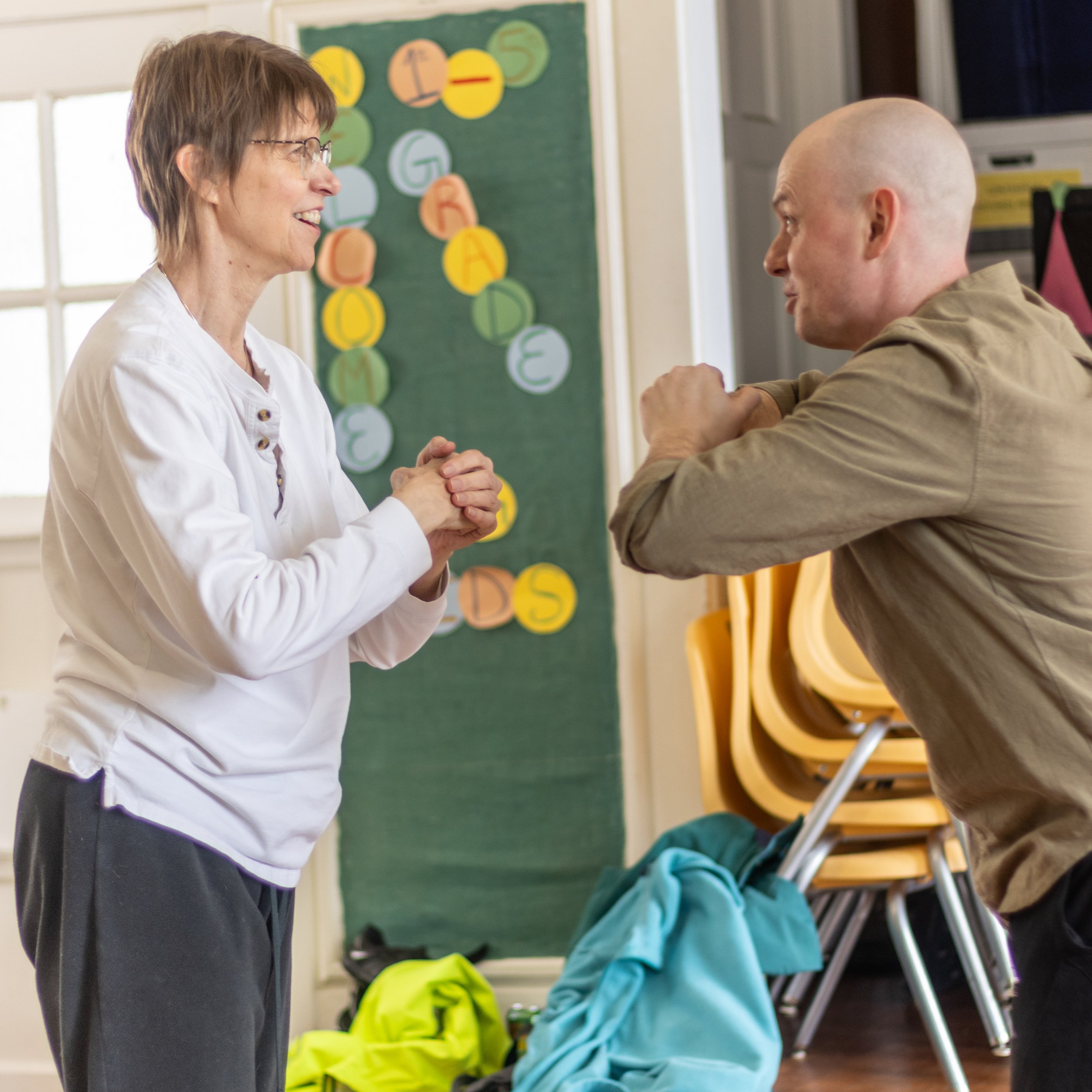Our Methods & Approach
What are the methods we use?
Qigong
The word “Qi” has many meanings, but first among them is life energy and breath. You can think of Qi as the general quality of your life and well-being. “Gong” means attention or dedicated time spent with something. So literally, qigong means energy work, or dedicated time and attention towards nurturing energy or breath and its quality.
Qigong is an entire wing of Traditional Chinese Medicine and can be applied to nearly anything that ails you. When someone says they practice Qigong, in general, they mean they’re practicing an art meant to create greater health and well-being in themselves.
There are, of course, a tremendous number of benefits that come from opening the energy channels of the body and learning to circulate your energy throughout the various parts of the body/mind.
It gets the blood and lymph circulating
Calms the nervous system
Helps you regulate yourself through breath and mindfulness
Tai Chi Chuan
Tai Chi Chuan (aka Tai Chi) is characterized by the practice of slow, fluid, and graceful movements meant to strengthen the body and mind as well as to release any and all tension in the body. Tai Chi is the ultimate source and limit of reality, from which springs Yin and Yang in all their variations and manifestations.
Tai Chi is an internal style of Chinese martial arts that utilizes fluid movements, relaxation, and the opponent's energy and force against them. We seek to become one with that which opposes us to turn the situation in our favor.
Tai Chi has the potential to be one of the most effective means of exercise you can do that serves your whole wellbeing.
Tui Shou & San Shou
Tui Shou translates to “pushing hands” and is a two-person training method used to develop the timing, sensitivity, and mind state necessary to be calm and effective in a self defense, or really any, stressful situation.
San Shou roughly translates to “fighting form”, or “dividing hands”, or “separating hands.” You can think of it as the bridge between Tui Shou and the actual fighting elements of the art. It’s a form that helps to develop timing and applications for self-defense and actual fighting. While San Shou helps to build you into a fighter, we use the practice to develop ourselves and our ability to stay centered, and harmonious under stress and conflict.
The skills that come along with the study and practice of Tuishou and San Shou are useful for almost every athletic activity you could possibly do.
Pushing hands helps you cultivate a level of physical and energetic sensitivity that is difficult to achieve with other methods.
These sorts of awareness can be applied to martial arts, healing work, or any activity where hand sensitivity or body awareness is important.
Why study a martial art?
Martial arts is a discipline and life-cultivating practice.
It’s hard
AND
That's a good thing.
By learning a martial art you can:
LEARN TO OVERCOME HARD THINGS
You CAN gain the skill of overcoming difficulty.
It also helps frame the difficulty of your life into a different context. When you learn to do difficult things, it’s a skill you practice, and then the hardest parts of life become easier to manage.
STOP FIGHTING YOURSELF SO MUCH
You learn to move with the forces of your life/mind/emotions/ego and circumstances (the external pieces) of your life and learn to move and work with them.
UNIFY YOUR MIND AND BODY
Martial arts help you cultivate stillness of mind.
Tai chi, in particular, is about learning to maintain harmony and balance amidst change.
You train so you can maintain a sense of equanimity and balance in many situations, including stressful ones. Rather than reacting or feeling overwhelmed by a stressful situation you can instead stay present, calm, and respond rather than react.
Rather than being overwhelmed, you can meet with it in a beneficial way.
Tai chi helped bring my meditation practice and mindfulness into my movement, my day-to-day, and the areas that cause stress.
EXPAND YOUR COMMUNITY
You also gain a community when you join a martial arts group. You develop with people who are similar. You can share strategies with your fellow students, both in and out of the martial arts context, that have helped you. You can serve others while also receiving support.
These are important skills and benefits for a balanced body and mind!
Why learn self-defense?
To study a martial art isn’t necessarily to study self-defense. However, self-defense is present in martial arts if you want to go there.
I use Tai Chi Chuan’s techniques of Push Hands and San Shou to create change and release blockages. We engage in healing work while simultaneously developing awareness and learn techniques that can be applied to self-defense.
By learning self-defense, you learn to:
Manage conflict | Engage different systems of your body | Maintain healthy boundaries | Practice emotional release.
SELF-DEFENSE HELPS YOU MANAGE CONFLICT
Self-defense is less about art, and more about what works for you in defending yourself while living your life under conflict. It’s about learning to engage in conflict in a balanced way.
Conflict can show up in many ways.
Managing your cranky 4-year-old
Speaking with your cranky boss
Being on a call with an upset client
Handling the person who cut you off in traffic
And of course, the more physically traumatic experiences like mugging
You learn self-defense to shore up your weaknesses and unearth a stronger, more empowered, and balanced version of yourself.
You do it to let go of what doesn’t work and develop what does.
It takes training and time.
YOU DON’T HAVE TO BE “STRONG”
My method doesn't require you to be “strong”. This practice applies to folks in their elderhood, those with prior Tai Chi or Qigong experience, former athletes, and more.
Another awesome thing about Tai Chi Chuan is that we don’t rely on muscular force in our training. We rely on the fascia (the body’s connective tissue) and chi (life force energy). The fascia maintains its strengths over time. Tai Chi engages the fascia system.
Learning the art of Tai Chi, you’re learning to engage a different system of your body, the connective tissues of the body, not relying only on the strength of your muscles. This way, we get better and more effective over time, rather than less, as the muscular system gets weaker with age.
SELF-DEFENSE HELPS WITH BOUNDARIES AND EMOTIONAL RELEASE
One of the things I love about Tai Chi Chuan as a martial art and a means of self-defense is that the core method is the release of tension. Releasing tension in our training also means we may have opportunities to release past traumas and emotional blockages when they arise. As a teacher, I hold space in these moments when students need additional support.
Self-defense helps you learn to voice your needs. Learning to communicate your needs can be powerful.
For example, I find most people have a difficult time saying:
“No, you are not going to come any closer to me.”
Why?
Well, it’s hard to form and maintain boundaries under stress. However, the more you practice self-defense, the more you locate your inner will and strength.
When practiced in a balanced way with the right set and setting, self-defense training supports you physically, mentally, and emotionally.
When picking a place to learn martial arts and self-defense, it’s important to pick a teacher who speaks to you and who also has a group and community that speaks to you to support your learning. The teacher, community, and what it looks like may change over time.
“You learn self-defense to shore up your weaknesses and unearth a stronger, empowered, and balanced version of yourself.”
— Jeffrey Daniel, Tai Chi & Qigong Instructor
WHO THIS PRACTICE IS FOR:
You can practice a minimum of 5-15 minutes every day outside of class.
Ready for evolution and change. These practices will start to transform your life.
Basic ability to move around and stand for a few minutes at a time. You’ll need a certain level of mobility to stand and walk around for most of my classes, unless otherwise stated, or the class is specifically seated.
You’re in your 40s,50s, or 60s, and want to age gracefully.
Chronic muscle pain or joint pain, but you are still able to use your muscles and joints.
Chronic mild to moderate anxiety.
Working through emotional issues, anger, and control problems.
Old sports injuries, but you’re still relatively active.
Want support in areas where medical support hasn’t worked.
Martial arts and self-defense practitioners who want to learn more of the internal arts, the energetic stuff, and want to soften up a bit.
Want help with your sports game? These techniques apply to all racket sports, basketball, and baseball. Tai chi will help hand/eye coordination.
Deepen and expand your meditation practice. Tai Chi brings sitting meditation practices into movement and action.
You want to learn about the more subtle energetic components of your life.
WHO THIS PRACTICE IS NOT FOR:
If you want to hurt and dominate others, we won’t work well together
My classes aren’t well-suited for those extremely limited in their mobility. Group classes aren’t ideal for fused joints or extreme body limitations. If you have extreme body limitations, reach out to me about private sessions so we can build a curated practice for you to augment the work you do with your medical professionals.
Looking for this to cure all your ailments? These classes are for maintenance and improvement, not meant to replace medical professional support.
TESTIMONIAL
“When I first started training with Jeffrey, I was afraid I wouldn’t be good enough or be able to learn. However, over time,”… I’ve improved my ability to care for myself and have developed more positive self-esteem. My balance, both physically and mentally, has improved.”
-Nic D., Tacoma, WA





